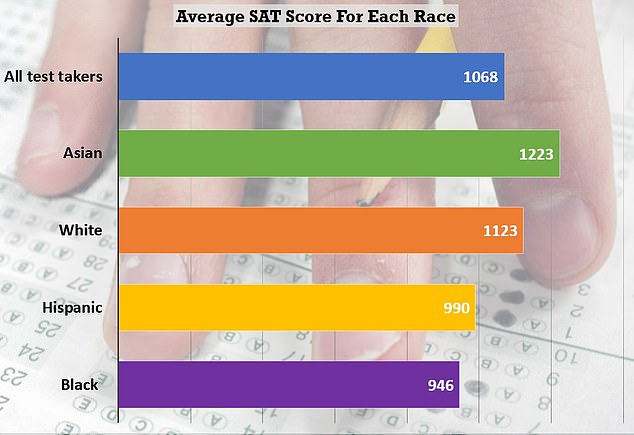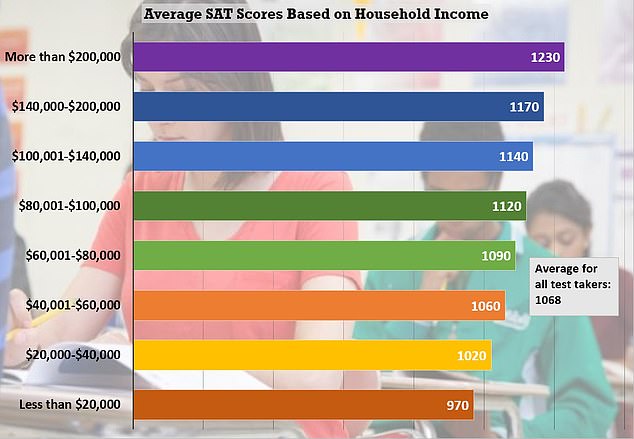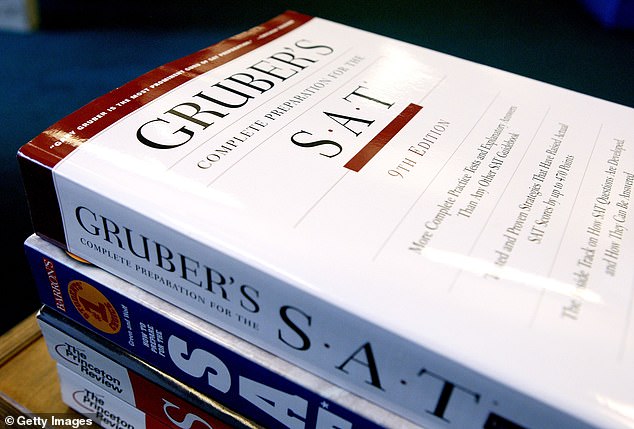College board president behind SAT ‘adversity score’ was also the mastermind of the controversial K-12 ‘Common Core’ curriculum changes that has children just learning for a test

College Board president David Coleman
The man behind the new plan to assign adversity scores to every student who takes the SAT is the same person who championed the controversial Common Core K-12 curriculum standards that remain a point of contention among parents, teachers and political leaders in many states.
David Coleman, president of The College Board, which administers the SAT, was the ‘architect of Common Core’ – which several states dropped after its adoption due to pressure from local communities and educators, according to Fox News.
Proponents of Common Core say the method was meant to establish a baseline of curriculum standards for K-12 education, with a focus on math and English language arts literacy.
It implemented broad new standards for how much a student should know and be able to do at the end of each scholastic year, leading to what critics said was ‘teaching to the test’ – or a system in which teachers are under so much pressure to get their students to perform well on the test that other educational priorities fell by the wayside in favor of test preparation.
Coleman co-founded Student Achievement Partners, a nonprofit that ultimately developed the Common Core state standards.
The Common Core was adopted in 2010 by 45 states and Washington D.C. with bipartisan support. The goal was to move students away from reiterating memorized facts and toward the ability to analyze complex information.

Anita Stapleton, of Pueblo, Colorado, holds up a sign in protest of Common Core educational standards in February 2014. Stapleton was in front of the Colorado Department of Education offices providing info against the Common Core program
The Bill & Melinda Gates Foundation poured $400 million into the effort, bolstering taxpayer funds to implement the Common Core standards.
Soon after, local communities and educators began criticizing the switch, saying that it undermined local authority over curriculum.
Further complicating things were teacher criticisms that the standards were too confusing, too rigorous and out of touch with what students really needed to learn.
At least six states have repealed Common Core, though some have maintained similar standards with different labels.
As the criticism soared, Coleman left Student Achievement Partners to join The College Board.

This graph breaks down the average (mean) score for all test takers, as well as for those of different races. Source: The College Board
Now critics are saying that Coleman’s new effort to establish adversity scores is a stab at relevancy as more questions arise about whether standardized testing is fair.
That point is relevant in the wake of a college admissions bribery scandal that has ensnared more than 50 people including actresses Lori Loughlin and Felicity Huffman, who were accused of paying big money to get their teen daughters into top universities.
The scandal has raised serious questions about how privilege helps many students buy their way into the nation’s best schools – or at the least allows wealthy families to pay for tutors, extra-curriculars and SAT test prep that low-income households could never afford.
‘Promotion of adversity scores is the latest attempt by the College Board to defend the SAT against increasingly well-documented critiques of the negative consequences of relying on admissions test scores,’ Bob Schaeffer, the public education director at FairTest, the National Center for Fair and Open Testing, told US News & World Report.
The new scores are intended to level the playing field between people with different social and economic backgrounds, but critics say children of affluent parents could be penalized by the system.
The new system will use 15 different factors to weigh a student’s adversity score, based on things such as the crime and poverty rates in the neighborhood where the teens grew up.
Other elements of the adversity index include housing values, family median income, whether a student is a child of a single parent, or speaks English as a second language.

The new system will use 15 different factors to weigh a student’s adversity score, based on things such as the crime and poverty rates in the neighborhood where the teens grew up. Source: The College Board
The quality of the high school that students attend will also be factored into the final adversity score.
‘There is talent and potential waiting to be discovered in every community – the children of poor rural families, kids navigating the challenges of life in the inner city, and military dependents who face the daily difficulties of low income and frequent deployments as part of their family’s service to our country,’ Coleman said in a statement Thursday.
‘No single test score should ever be examined without paying attention to this critical context,’ he added.
However critics, including Michael Nietzel, president emeritus of Missouri State University, have said ‘there’s not a straight line from socioeconomic background to SAT performance.’
‘At a time when standardized testing is under increased scrutiny and is even being discontinued or minimized as an admission tool by hundreds of colleges, one must wonder whether adversity scores are primarily an attempt to protect the SAT’s market or to promote social mobility,’ Nietzel wrote in an opinion piece for Forbes.
‘Colleges that are genuinely concerned about the bias built into the tests or the cheating associated with the SAT or the ACT, have a simpler choice: don’t require students to take them,’ he added.

SAT preparation books are seen on a shelf at A Clean Well Lighted Place For Books bookstore in San Francisco in this file photo
Written by Valerie Bauman, Social Affairs Reporter for The Daily Mail ~ May 17, 2019

 FAIR USE NOTICE:
FAIR USE NOTICE: